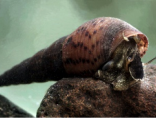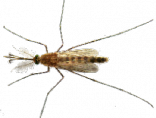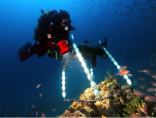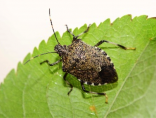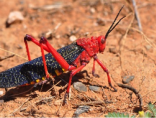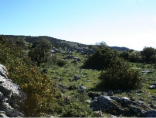The Louis Thaler Lectures
The Louis Thaler Lectures
The CeMEB (Centre Méditerraneen Environnement et Biodiversité) is a consortium comprising ten research institutes and more than 600 researchers with permanent positions working in biodiversity, ecology and evolutionary biology in Montpellier and Perpignan.
The Louis Thaler Lectures are an annual event organized by the CeMEB, featuring high-profile and thought-provoking international researchers with broad views in these research fields. They were launched in 2003 in honour of Louis Thaler, who was one of the main architects of evolutionary biology in France, and the founder of the ISEM (Institut de Sciences de l'Evolution de Montpellier – member of CeMEB).
Visiting scientists
 |
2017 Jordi Bascompte Plant-animal mutualistic networks: the architecture of biodiversity (VIDEO) |
 |
2018 Sandra Lavorel |
|
|
2016
Princeton University, US
In search of the causes of evolution: Darwin's finches on the Galapagos (VIDEO) |
|
2014
University of Edinburgh, UK
From butterfly wings to plant sex chromosomes: the evolution of suppressed recombination |
|
2011
Indiana University, US
Mutation and evolution
|
|
2011
Pennsylvannia State University, US
The future of infectious disease in a pharmaceutical age
|
|
|
|
2009
University of Missouri-St Louis, US
Evolutionary diversification and the filling of ecological niche space
|
|
2007
UC Davies, US
Time and Ecology
|
|
|
2006
University of Rochester, US
The genetics of speciation in Drosophila
|
|
2004
Princeton University, US
The complexity of ecology and the ecology of complexity
|
|
|
2003
University of Cambridge, UK
The evo-devo of eyespots on butterfly wings
|
Who was Louis Thaler ?
Louis Thaler (1930-2002) was one of the most influential French evolutionary biologists of his generation; he worked at the University of Montpellier from 1961 until his retirement in 1995.
In his youth, he was greatly influenced by his uncle, Paul Ostoya, a botanist and convinced evolutionist, and by René Lavocat, one of the world specialists in fossil mammals. After his studies at the Ecole Normale Supérieure in Paris, he became a palaeontologist. The few months he spent in 1956 at the Department of Geology and Paleontology of the American Museum of Natural History in New York, then led by George Gaylord Simpson, one of the builders of the evolutionary synthesis, were decisive for Louis Thaler’s project to enforce a multidisciplinary approach (paleontology, genetics and ecology) to evolution. This approach contrasted with the French scientific landscape of the 1950s, where the "theory of evolution" was the subject of multiple ideological debates (that lingered on till the 1970’s), but where a scientific approach for testing the major concepts underlying the Darwinian paradigm was not yet in place.
After getting a permanent position in the Department of Geology at the University of Montpellier in 1961, his work focused on the fossil rodents of the geologically-rich Languedoc region. During the 1960’s he brought together a group of young paleontologists who extended his research to other vertebrate groups (from fish to bats). In the mid-1970’s, driven by the intimate conviction that evolution needs to be addressed at many different time scales, he expanded his work to study wild rodent populations using genetical and ecological approaches. In 1975 Louis Thaler founded the Master in Evolutionary Biology and Ecology (BEE) which continues to this day ( http://www.masters-biologie-ecologie.com/blog/), and a Doctoral School in integrative biology which formed hundreds of PhD students in fields ranging from paleontology to ecology, genetics and molecular biology. The creation of the ISEM (Institute of Evolutionary Sciences of Montpellier; http://www.isem.univ-montp2.fr/lisem/) in 1980, which he directed until 1990, was in line with his desire to bring together a set of disciplines, from paleontology to ecology, with the theory of evolution as the main pillar. Louis Thaler was also strongly involved in the management of research, serving as president of the Université des Sciences et Techniques de Languedoc between 1978 and 1983, but also on a large number of research institute (CNRS, Cirad) and university committees, always with the aim of bringing evolutionary theory and thinking to the front. This strong commitment to French internal affairs probably prevented him from developing his research to the full, and receiving international recognition.
If today France hosts one of the largest and most dynamic communities of evolutionary biologists and ecologists in Europe is largely thanks to the stimulus provided by the pioneering work and vision of Louis Thaler.
